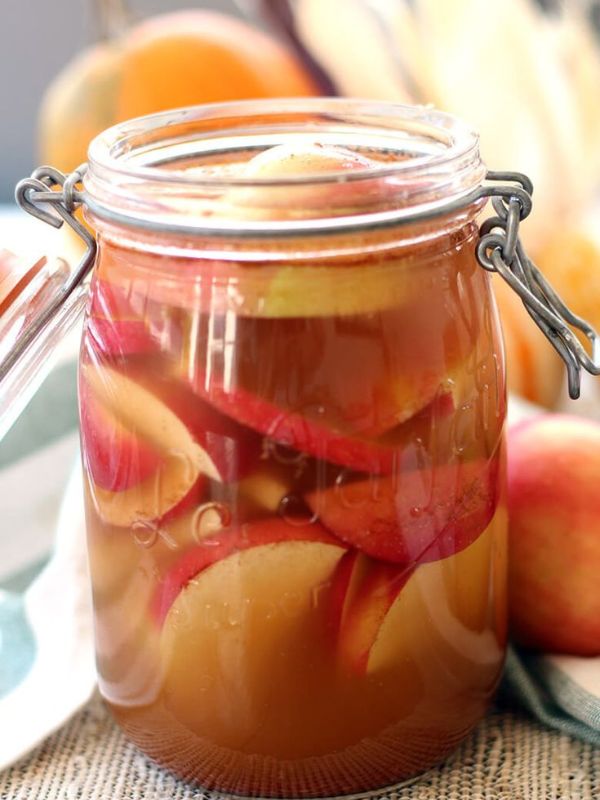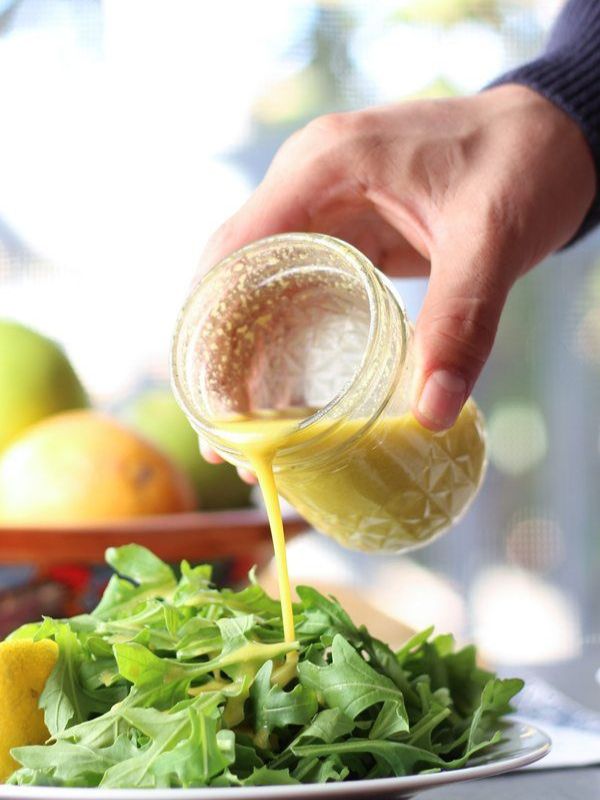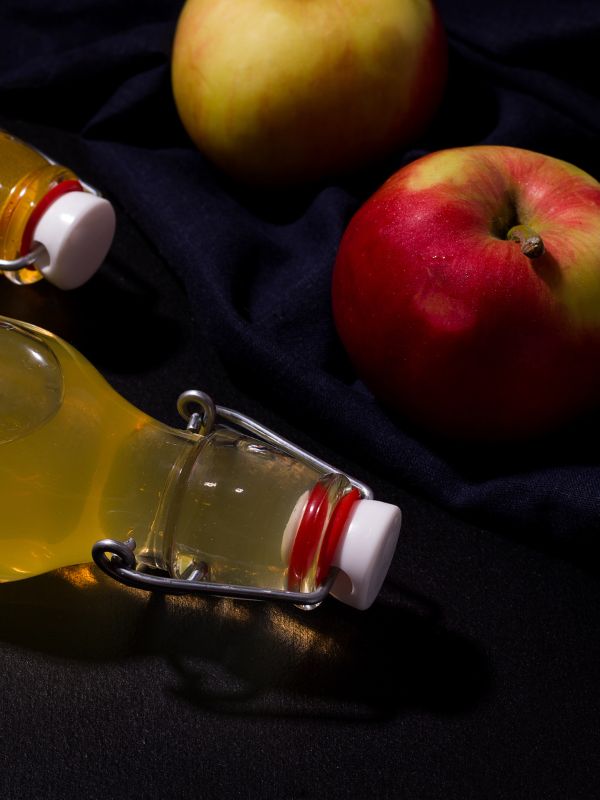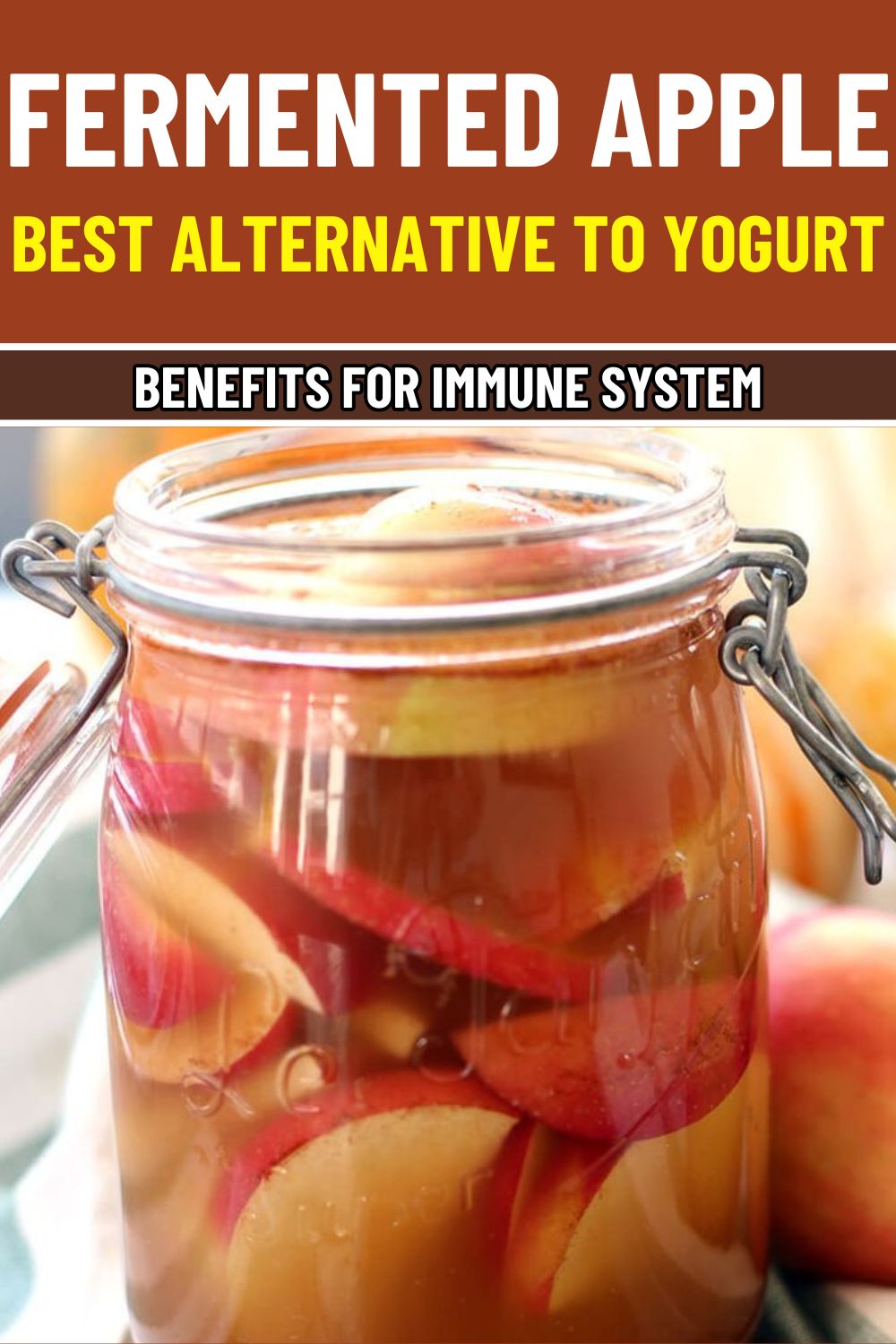If you’re looking for a way to boost your immune system while enjoying a vegan, dairy-free option, fermented apples might just be the answer.
This simple yet powerful food offers many of the same benefits as yogurt without the dairy.
Packed with probiotics, vitamins, and antioxidants, fermented apples can help support your gut, enhance your immunity, and even improve your overall health.
#1. Supports Gut Health
A balanced gut microbiome is essential for overall health, and studies show that probiotics can help regulate gut bacteria. The beneficial bacteria in fermented apples help stimulate the production of immune cells that fight off pathogens.
By improving gut health, fermented apples help strengthen your immune system, ensuring your body has the resources to fend off infections.
Research by the National Institutes of Health has shown that a healthy gut microbiome is linked to improved immune function, and the probiotics found in fermented apples can play a critical role in maintaining this balance.

#2. Boosts Natural Immunity with Probiotics
Since fermented apples are an excellent source of lactic acid bacteria and other probiotics, they help balance your gut flora. When your gut is healthy, it can more effectively produce antibodies and other immune cells that fight infections.
So, you can add fermented apples to your diet regularly, giving your immune system the tools it needs to protect your body from pathogens.
Moreover, a study published in the Journal of Clinical Gastroenterology shows that probiotics can help modulate immune responses, reducing the severity of infections and enhancing overall immune function.

#3. Enhanced Antioxidant Protection
Not only do fermented apples provide probiotics, but they also contain vitamins and antioxidants, such as vitamin C and flavonoids, that help reduce oxidative stress.
Free radicals, produced in the body through normal metabolic processes, can damage cells and weaken the immune system. Antioxidants help neutralize these free radicals, reducing inflammation and boosting your body’s ability to fight infections.
Fermented apples, like fresh apples, contain antioxidants like quercetin and catechins, which have been shown to reduce oxidative stress and support immune function.

#4. Vitamin C for Immune Defense
Fermented apples are rich in vitamin C. 100 grams of fermented apples can provide significant amounts of vitamin C, which is necessary for the production and function of white blood cells that help fight off infections.
In addition, vitamin C boosts the production of collagen, which strengthens the skin and mucous membranes, forming the first line of defense against pathogens.
A study by the National Institutes of Health indicates that adequate vitamin C intake enhances immune function by supporting the activity of immune cells and reducing the duration of common colds.

How to Prepare Fermented Probiotic Apples
1. Prepare the Apples
Wash the apples thoroughly, keeping the peel intact to retain fibers and nutrients.
Slice the apples thinly, removing only the cores and seeds.
2. Sterilize the Jar
Wash the glass jar and its lid with hot, soapy water. Rinse well and let it air dry. For extra cleanliness, boil the jar for a few minutes.
3. Prepare the Brine
Dissolve the sea salt in the filtered water in a large bowl, stirring until fully dissolved.
4. Assemble the Ferment
Place the apple slices in the sterilized jar, leaving about 2 cm of space at the top.
Pour the brine over the apples, ensuring they are fully submerged. If needed, use a sterilized weight to keep the slices under the liquid.
5. Ferment
Cover the jar opening with a clean cloth or paper towel and secure it with an elastic band.
Store the jar in a dark place at room temperature for 3 to 7 days. You’ll notice bubbling and a characteristic sour smell as the fermentation process occurs.
6. Finish
After the fermentation period, seal the jar with its lid and store it in the refrigerator. This will slow down the fermentation process.
Additional Tips
- Flavor Variety: Experiment with different apple varieties like Fuji, Gala, or Granny Smith to customize the flavor.
- Storage: Keep the fermented apples refrigerated for up to 2 weeks.

How to Incorporate Fermented Apples into Your Diet
1. Daily Consumption for Immune Boost
To maximize the immune-boosting benefits of fermented apples, aim to consume 3 to 4 slices of fermented apples daily.
Start with a small amount if you’re new to fermented foods, as they may cause mild digestive discomfort initially.

2. Add to Salads for a Tangy Twist
Simply slice the fermented apples and toss them with leafy greens, avocado, nuts, and a drizzle of olive oil. This adds a probiotic punch while keeping your salad fresh and flavorful.
Use a mix of Granny Smith or Fuji apples to balance sweet and tart flavors.

3. Add to Smoothies
Blend fermented apples into your morning smoothie. Combine with other fruits like berries, spinach, and almond milk for a nutrient-dense smoothie that supports your digestive and immune health.
Add a spoonful of flaxseed or chia seeds for added fiber and healthy fats.

4. Make Fermented Apple Tea
Boil water and add a few slices of fermented apples to steep. This probiotic tea can be consumed in the morning or after meals to aid digestion and support immunity.
Add a squeeze of lemon for an extra burst of vitamin C.

Cautions and Precautions
As with any fermented food, it’s important not to overdo it. Too many probiotics can lead to bloating or digestive discomfort. Start with a small amount and gradually increase your intake.
If you’re allergic to apples, it’s best to avoid this recipe. Similarly, if you’re new to fermented foods, consult with a healthcare provider before starting to ensure it’s safe for you.
People with compromised immune systems or severe health conditions should check with a doctor before adding large amounts of fermented foods to their diet.
Disclaimer
This article is for informational purposes only and should not be considered a substitute for professional medical advice.
Always consult with a healthcare provider before introducing fermented foods into your diet, especially if you have health concerns or specific conditions.

Could Fermented Apples Be the Best Immune-Boosting Alternative to Yogurt?
